
Department for External Church Relations
The site uses cookies to help show you the most up-to-date information. By continuing to use the site, you consent to the use of your Metadata and cookies. Cookie policy
DECR chairman spoke at a meeting of the UN Security Council
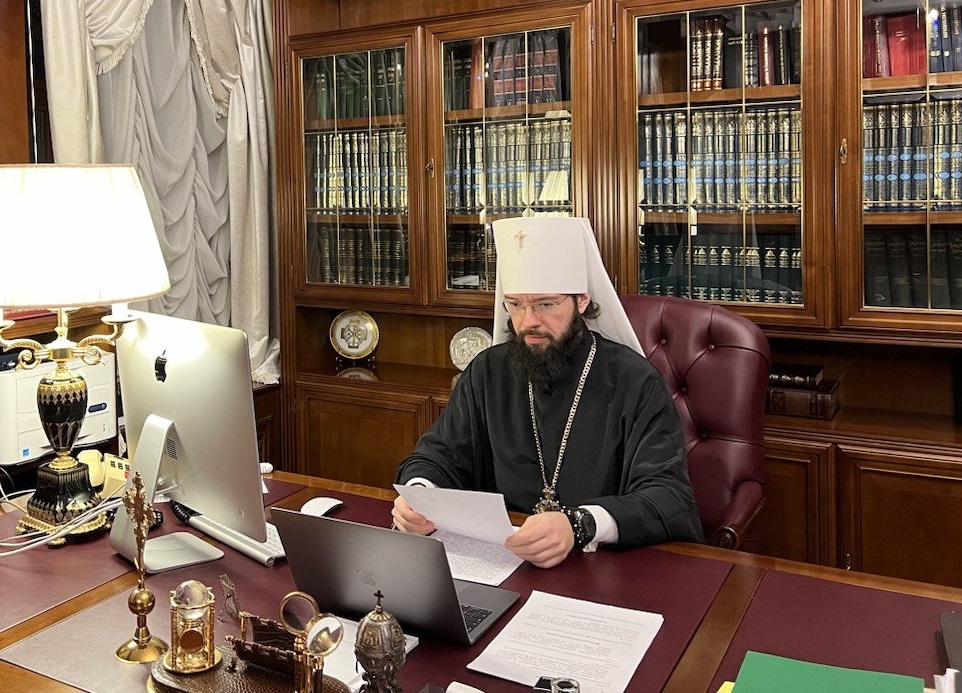
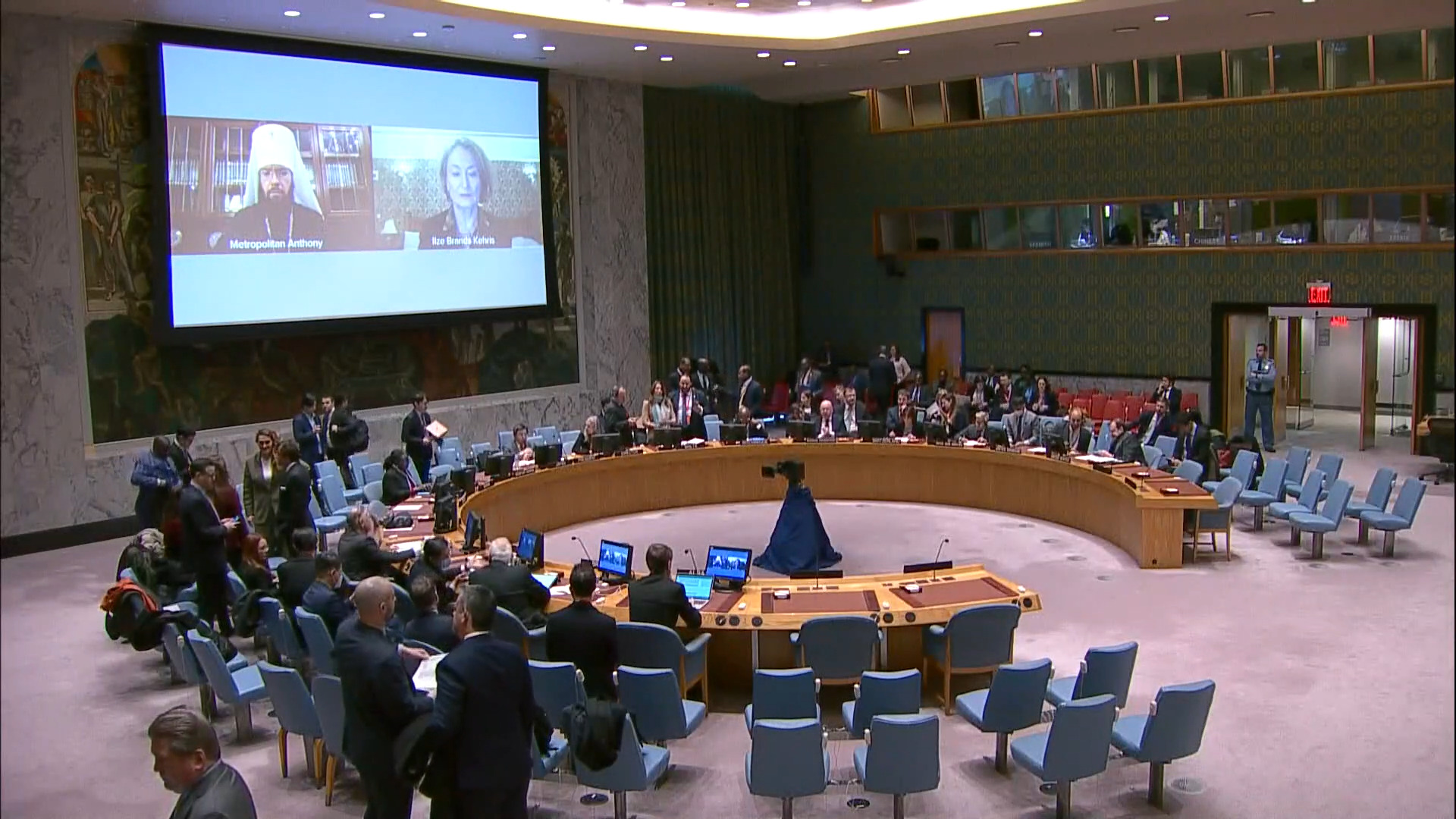
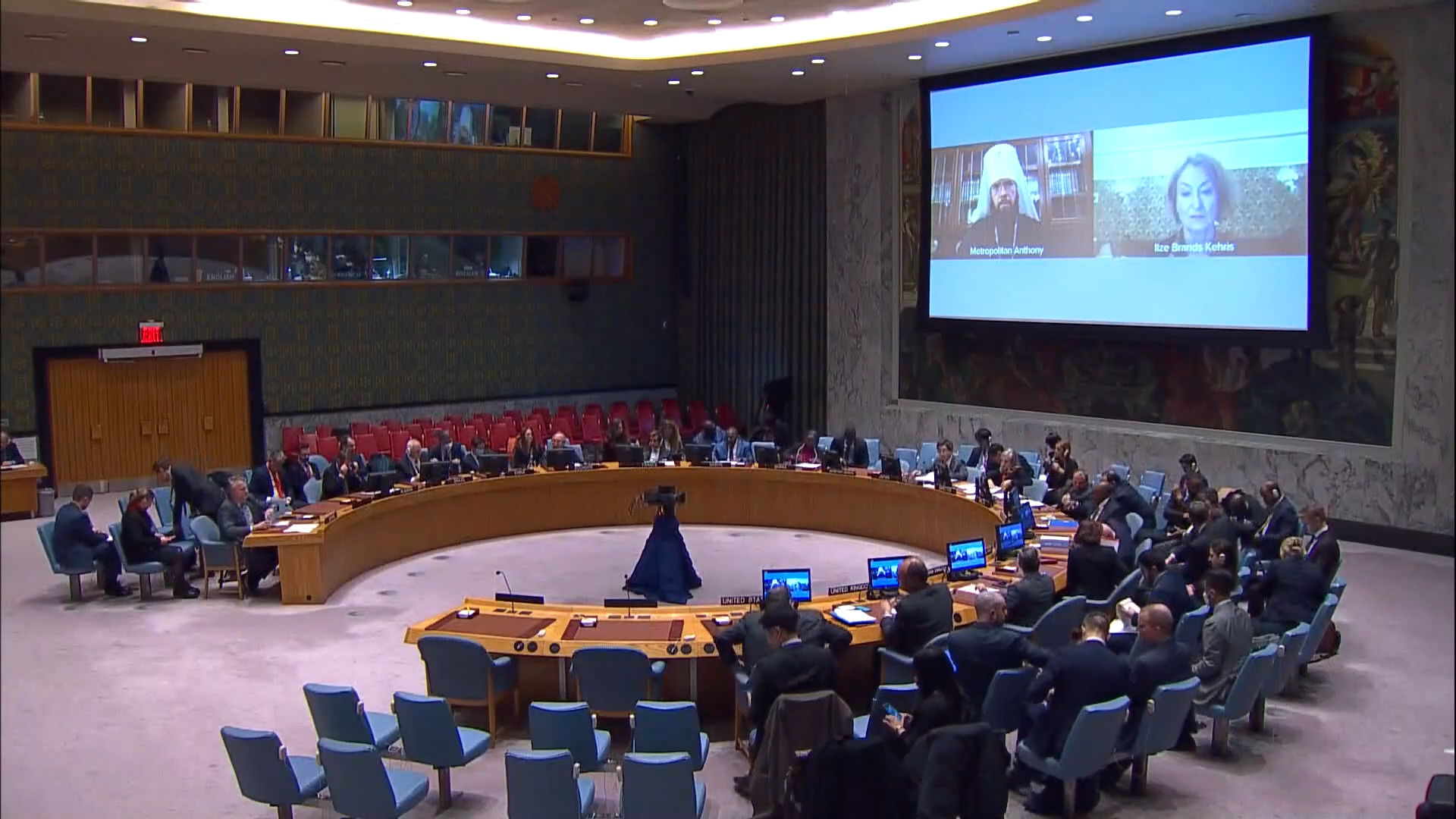
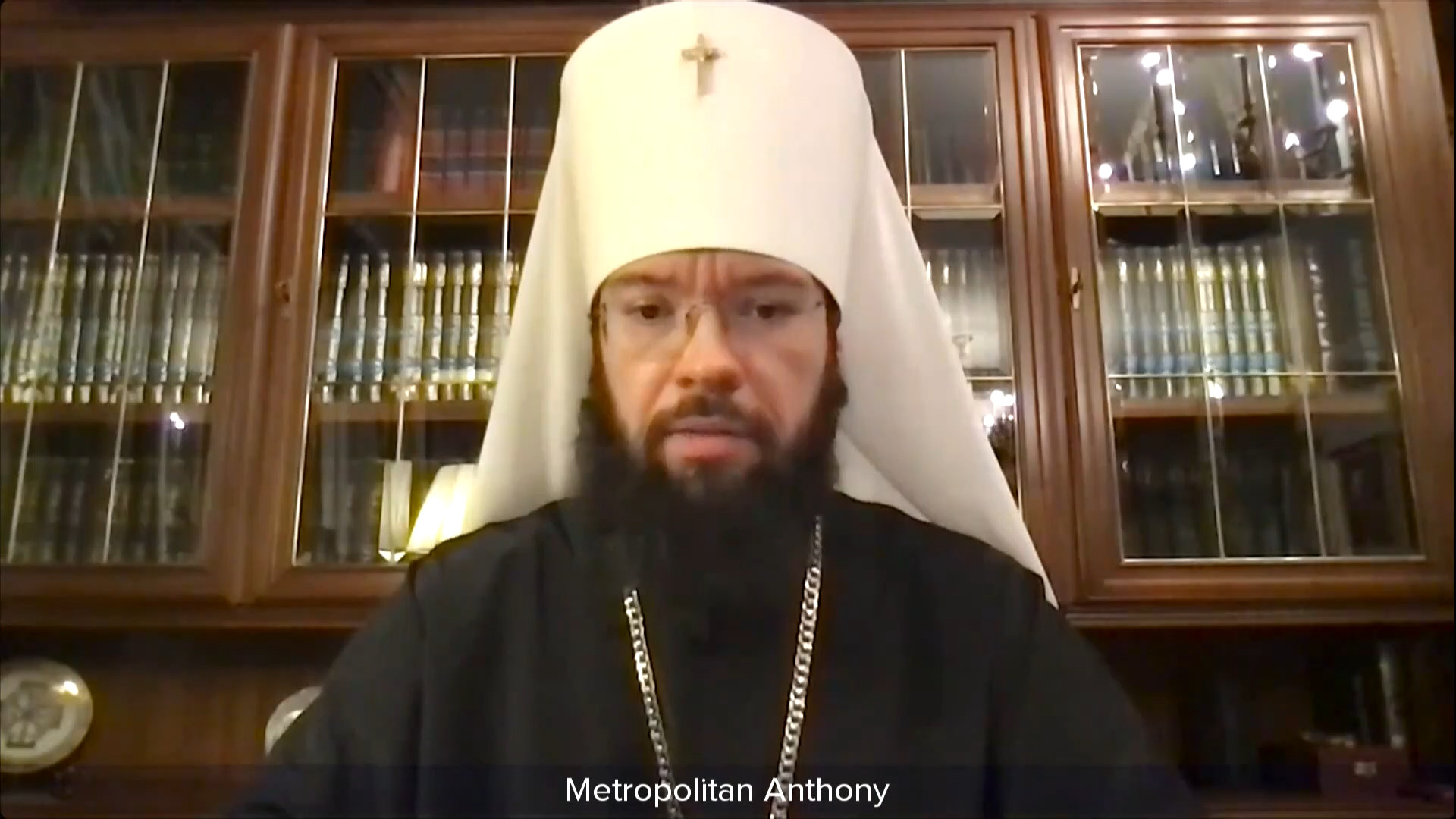
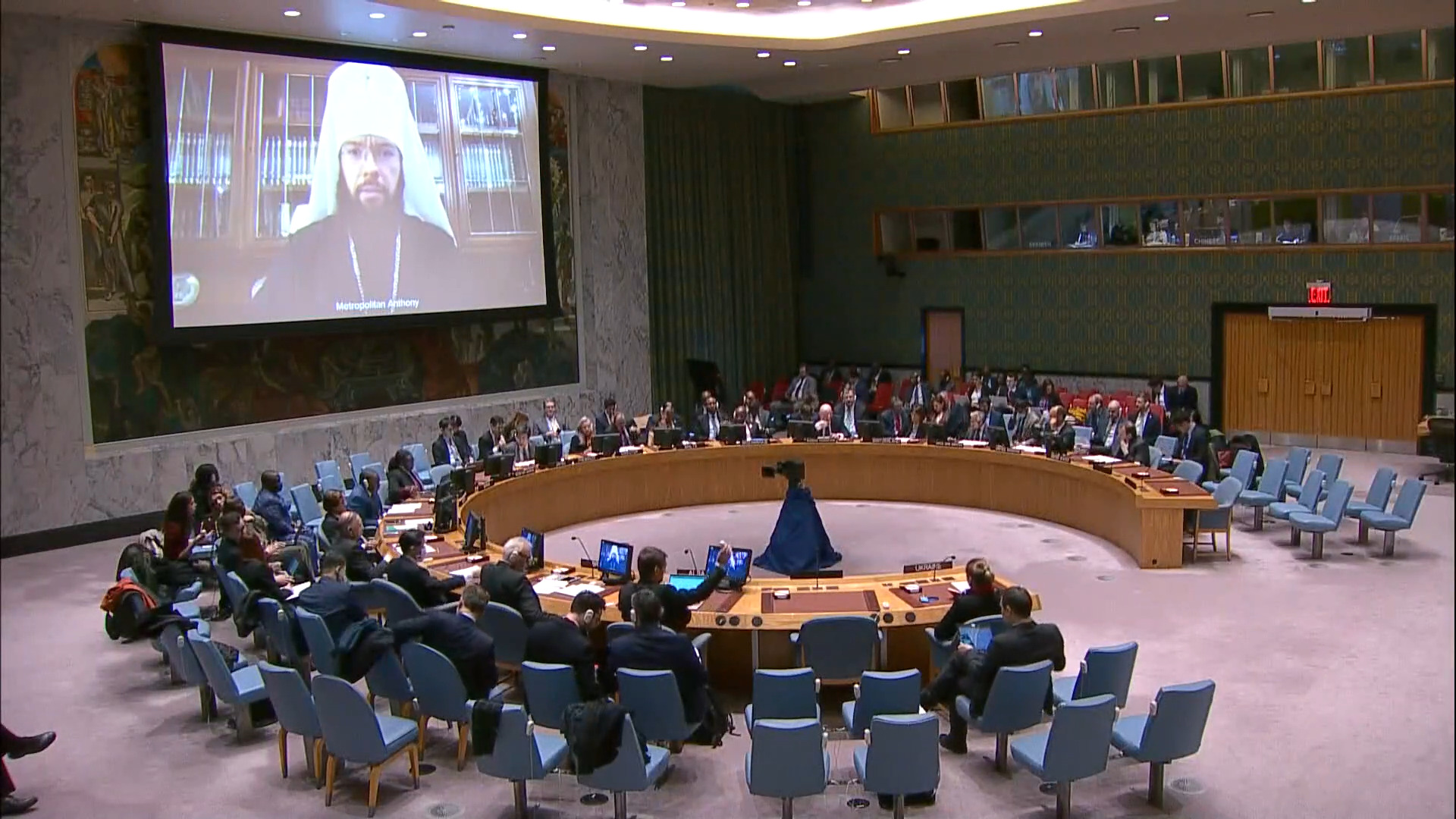

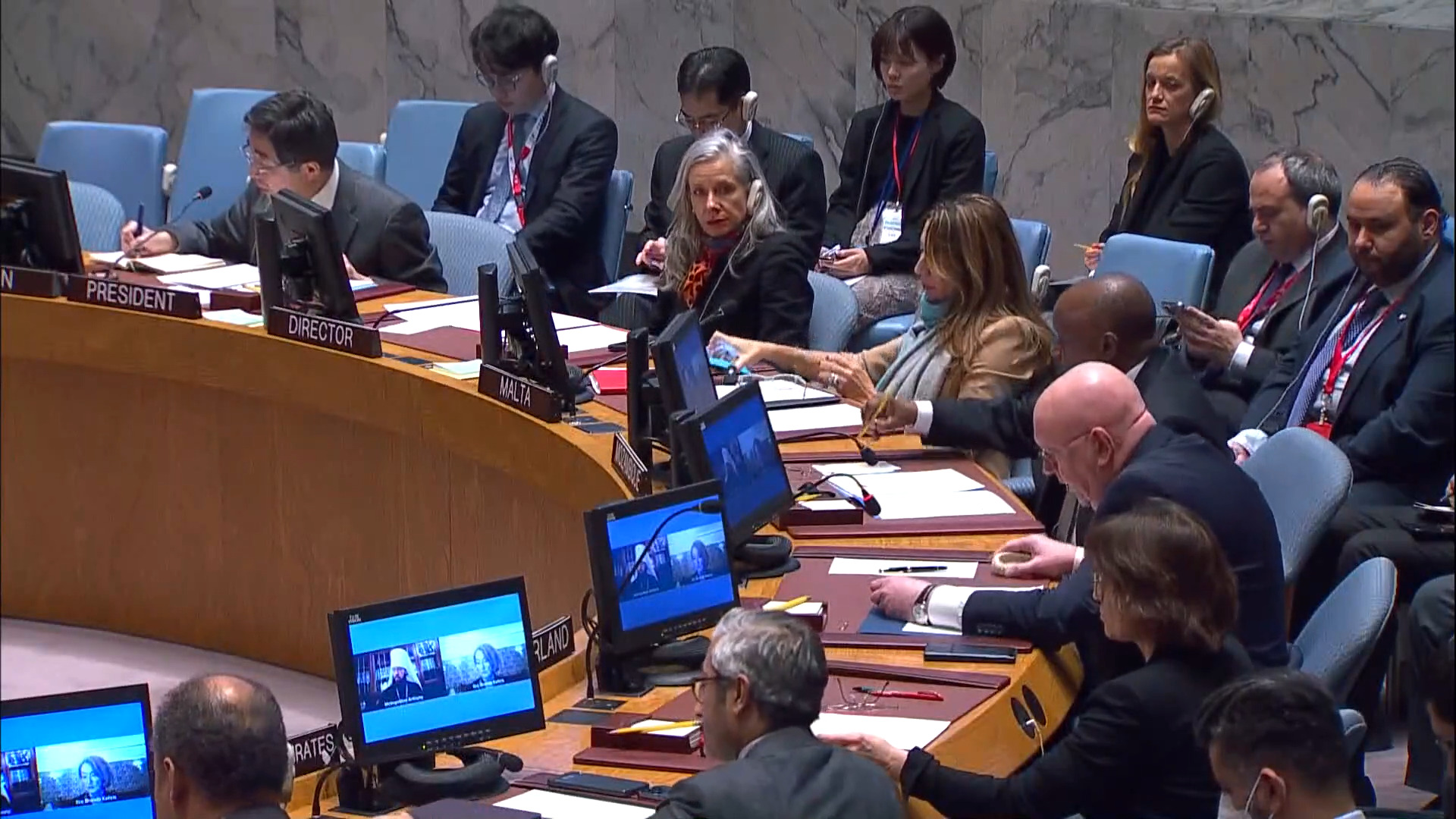
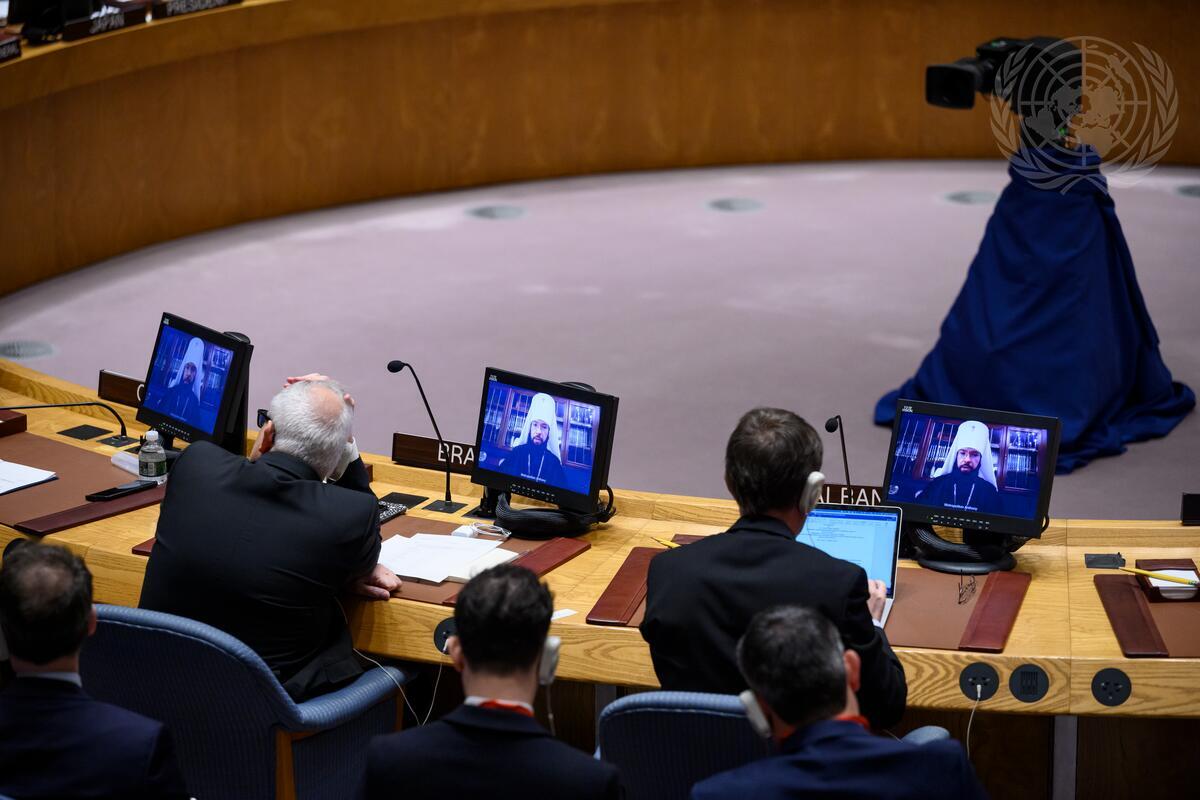
DECR Communication Service, 18.01.2023.
On January 17, the chairman of the Moscow Patriarchate Department for External Church Relations spoke virtually at a meeting of the United Nation Security Council delivering a report on the situation of the Ukrainian Orthodox Church in Ukraine.
During his 10 minutes-long speech, Metropolitan Anthony stressed that the Russian Orthodox Church believes it is her duty to take part in defending the rights of believers around the world both on her own and in cooperation with other Local Orthodox Churches and other religious organizations.
Pointing to the high peace-making potential of the Church in inter-state and civic conflicts, the DECR chairman noted that this potential has been undermined by the Ukrainian authorities’ attempts to destroy the millions-strong Ukrainian Orthodox Church, the largest religious organization in Ukraine.
Metropolitan Anthony recounted the contents of the latest decisions of the Ukraine’s National Security and Defence Council enforced by President Zelensky’s decrees and intended to introduce a number of measures infringing upon the rights of the Orthodox communities in Ukraine. In particular, the Ukrainian leaders have imposed the so-called ‘sanctions’ on fourteen hierarchs of the Ukrainian Orthodox Church and a number of her archpastors have been deprived of Ukrainian citizenship.
The DECR chairman reminded the audience that the deprivation of Ukrainian citizenship is directly contrary to the Constitution of Ukraine and the international agreements she signed, in particular the 1961 Convention on the Reduction of Statelessness. He pointed out that the decision on the imposition of ‘sanctions’ and on the deprivation of citizenship was made by a narrow group of persons without a legal investigation and an opportunity for protestation and is applied to only one religious organization and constitutes ‘a form of mass political repressions’. Moreover, what these decisions restrict are ‘precisely the constitutional rights and freedoms which the Ukrainian Constitution Article 64 forbids to limit during martial law or emergency situation’.
Having compared the situation of the Orthodox Church in Ukraine today with the years of atheistic persecutions in the Soviet Union, Metropolitan Anthony spoke about the mass searches carried out by the Ukrainian special services in diocesan administrations, monasteries and parishes of the Ukrainian Orthodox Church and about the bringing an action before court against clergy under hollow pretexts.
The DECR chairperson noted that the repressions against the Orthodox episcopate in Ukraine have become the culmination of the Ukrainian authorities’ persistent policy aimed to take control of the religious life of society. Precisely with this aim, pursued with the participation of the state apparatus and special services, that the so-called ‘Orthodox Church of Ukraine’ has been created, and the Ukrainian authorities’ further actions are aimed at forcing the Ukrainian Orthodox Church’s communities to join the newly created organization.
Metropolitan Anthony informed the meeting about an actually legalized mechanism of seizing churches of the canonical Ukrainian Orthodox Church and attempts of the state to deprive her of her historical name, and about seven more bills registered in the Supreme Rada with the aim to infringe upon the rights of communities and the faithful of the Ukrainian Orthodox Church, to deprive her of her churches and to impose absolute prohibition on her activity in the territory of Ukraine.
The DECR chairman drew the attention of the meeting to ‘the unbridled slander campaign against the Ukrainian Orthodox Church which has called to impose absolute prohibition on her activity, to use pressure and violence towards her representatives, which represents clear signs of the hate speech and has resulted in an upsurge of violence toward the clergy and communities of the canonical Orthodox Church in Ukraine.
In conclusion of his message, Metropolitan Anthony called the UN and members of the Security Council to pay attention ‘to the unlawful actions of the Ukrainian state authorities with regard to the largest confession of the country, to numerous facts of the violation of the rights of the faithful’ guaranteed by the UN Charter and other international legal documents and declarations.
Patriarch
Department Chairman
Sermons
05.01.2026
24.12.2025
24.01.2021
06.11.2020